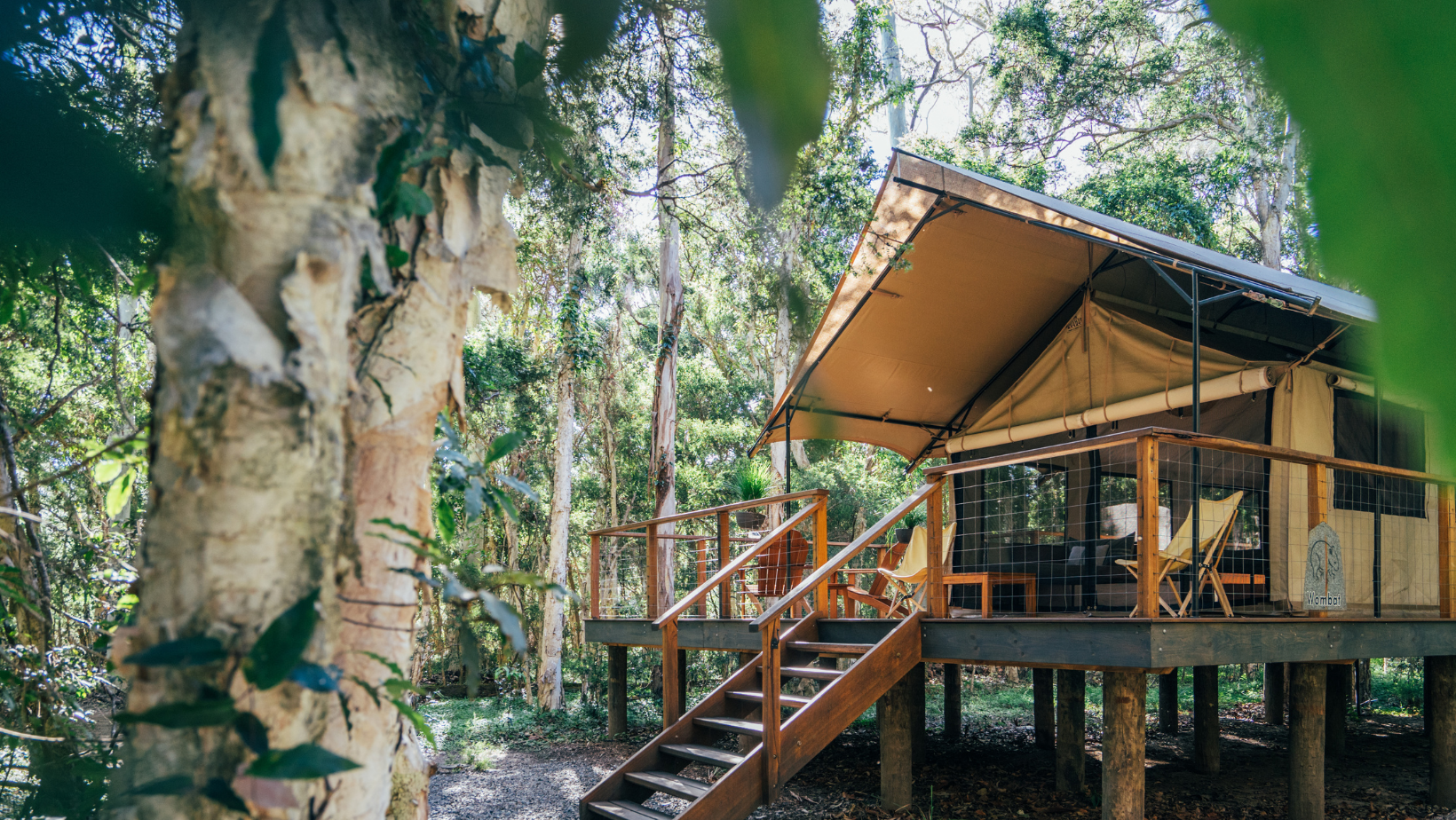Australia’s camping culture has long been rooted in the outdoors, from First Nations traditions to European settlers and today’s modern escapes.
Paperbark Camp in Woollamia, New South Wales, is often credited as the country’s first glamping site, blending luxury with environmental responsibility.
Recently, it ranked among the top 12 luxury camping sites globally, behind Uluru’s Longitude 131, reflecting the increasing international recognition of Australia’s glamping sector.
The property features 13 safari-style canvas tents elevated on wooden decks with polished hardwood floors, king-sized beds, and open-air ensuite showers. Guests can expect robes made from organic cotton and natural soaps and lotions, according to an article published by Concrete Playground.
While amenities cater to comfort, the site holds Advanced Eco Accreditation and deliberately avoids televisions, air-conditioners, or bar fridges, aligning with trends toward low-impact travel.
A Booking.com survey indicated that 91 percent of Australians intend to make greener choices on their next holiday, placing Paperbark Camp in step with consumer demand.
Dining is a central feature of the camp. The Gunyah Restaurant, designed by Sydney-based architects Nettleton Tribe, operates as a treehouse-style venue with treetop views and sea breezes.
It serves as a gathering space for guests, offering barista-made coffee in the mornings and a cocktail bar from mid-afternoon.
The à la carte menu includes items such as corn fritters topped with house-made feta, sourdough with Indian-style smashed potatoes, and rotating evening dishes like wagyu flank or smoked trout rice bowls.
Non-staying guests are also welcome to dine at the restaurant, expanding its community reach.
The location places guests within 100 acres of bushland rich with kangaroos, nocturnal wildlife, and native tree species, alongside opportunities for kayaking and paddleboarding on Currambene Creek.
Complimentary bikes connect visitors to Huskisson, home to microbreweries and local amenities, while nearby Jervis Bay provides access to beaches known for their white quartz sand and marine life, including dolphins, seals, and migrating whales.
For outdoor hospitality professionals, Paperbark Camp highlights how luxury, eco-certification, and authentic connections with local environments can coexist.
Its approach reflects broader market shifts where sustainability is not only an ethical decision but also a competitive advantage.
By combining upscale guest experiences with conservation values, businesses may find opportunities to appeal to a growing segment of environmentally conscious travelers while strengthening regional tourism economies.
Featured image by Paperbark Camp via facebook.com


